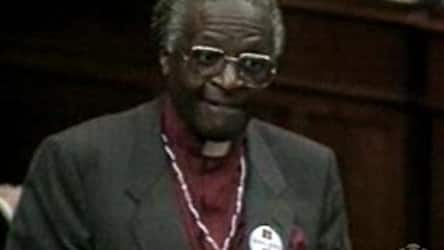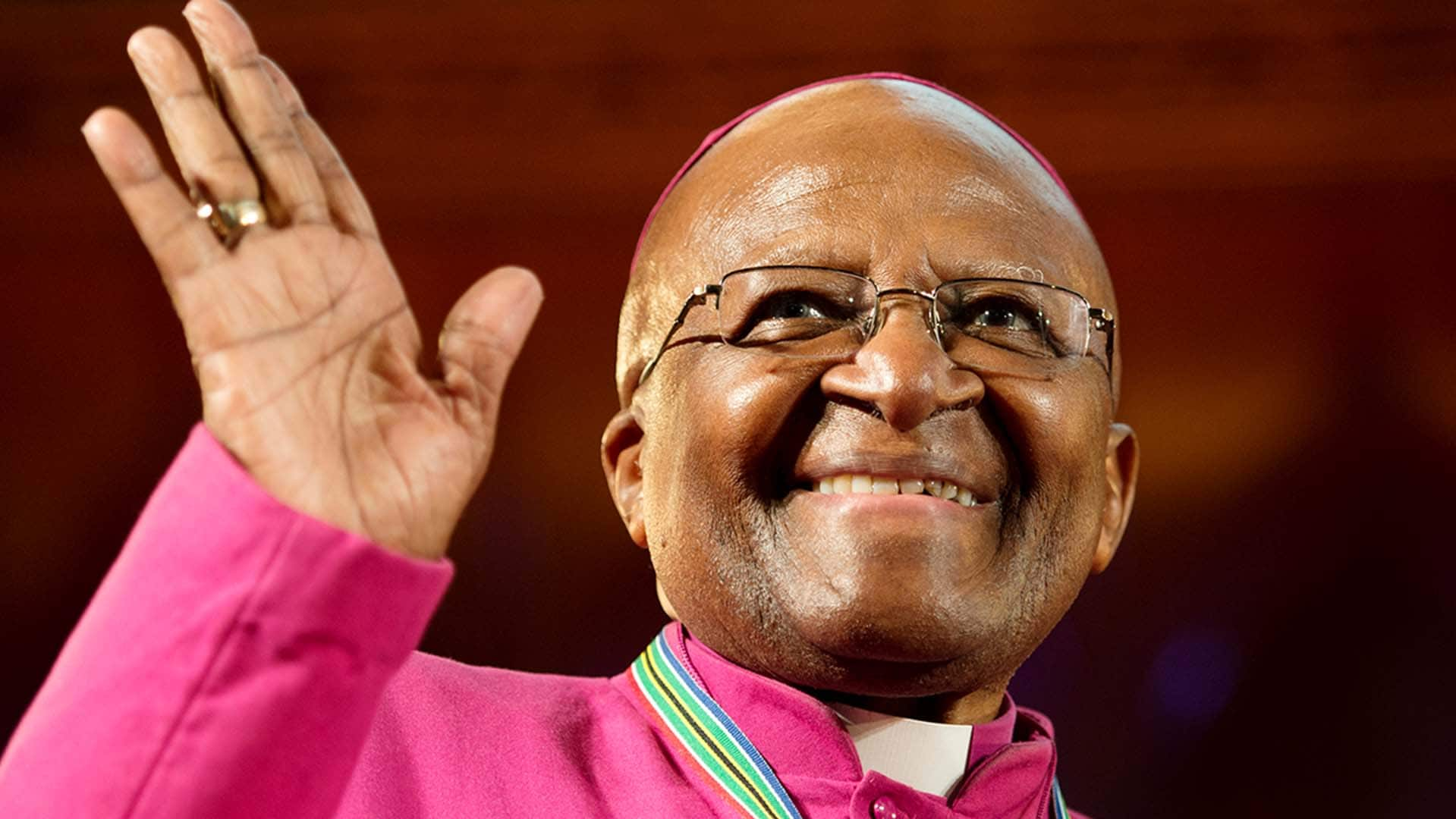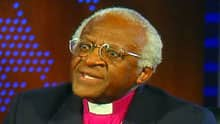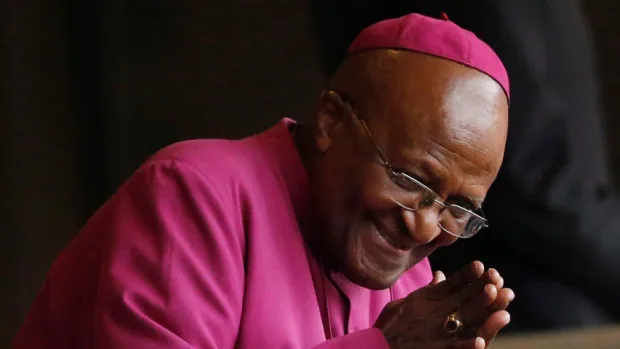The Nobel Peace Prize-winning religious leader and activist for Black South Africans visited Toronto in 1986, where he addressed the Ontario legislature to plead for help in the struggle against apartheid. Prominent Torontonians with connections to that struggle say his legacy will live on.

Bishop Desmond Tutu in Toronto
Bishop Tutu pleads for help fighting the apartheid in South Africa at the Ontario Legislature. 1:53
When Desmond Tutu visited Toronto 35 years ago as the first Black Anglican bishop of Johannesburg, he appealed to Canadians to join the struggle against South Africa’s apartheid regime.
In a historic speech to the Ontario legislature on May 30, 1986, Tutu called on the international community to intervene to end the system of oppression whereby the majority Black population was subjugated by a government controlled by the white minority.
It was the first time in 34 years that a foreign dignitary had been invited to address the legislature of Canada’s biggest province.
“Please help us. Our country is burning. Our children are dying,” said Tutu, who later became Archbishop of Cape Town.
“What you do where you are counts and makes a difference, if only to those who have their noses rubbed daily in the dust, to know that the world cares.”
Tutu, 90, best known as a Nobel Peace Prize-winning activist for racial justice and LGBTQ rights, died peacefully in Cape Town on Sunday, after a lifetime fighting for the freedom of Black South Africans and other oppressed people around the world.
A crusading trip
Tutu’s speech to Ontario MPPs was just one of many stops on his campaign to enlist Canadian “people of conscience” to the cause of racial equality, and to have governments introduce economic and political sanctions against South Africa.
He was in Toronto for the Arts Against Apartheid Festival — an eight-day event meant to raise money and awareness about the situation in South Africa.
Lloyd McKell, an activist and educator who helped organize the festival, credited Tutu with publicizing the injustice that Black and non-white South Africans didn’t enjoy the same rights as white people.
“It’s a sad day with the passing of Archbishop Desmond Tutu, but it’s a good day in the sense that we are reminded what his contribution has been to the people of South Africa and indeed to the world — awakening us to the horror of human oppression,” said McKell. “We are truly thankful for him.”
WATCH | Anti-apartheid icon Desmond Tutu dead at 90:

Anti-apartheid icon Desmond Tutu dead at 90
Desmond Tutu, who won a Nobel Peace Prize for his non-violent fight against apartheid in South Africa, died at the age of 90. Prime Minister Justin Trudeau was one of several world leaders who paid tribute to Tutu, calling him a tireless advocate for human rights. 2:19
The Toronto festival involved a variety of events and performances featuring local and international artists, including singers Harry Belafonte, Salome Bey and Liberty Silver.
Tutu was the guest of honour at a dinner at the Metro Toronto Convention Centre and headlined a “Rally Against Apartheid” at Queen’s Park that, according to a Maclean’s magazine report, at least 7,000 people attended.
“We were very happy with the overall response of Canadians who stood up and said, ‘This is wrong. This is immoral. This is inhuman,'” McKell said.
The Canadian government eventually did toughen its stance against the South African government in the summer of 1986, with Prime Minister Brian Mulroney helping to lead a successful campaign among British Commonwealth countries to impose trade sanctions.
- CBC Archives: Canada and the Fight Against Apartheid
‘His legacy will continue forever’
Carole Adriaans, founder of the Toronto-based charities South African Women for Women and Zenzele Development Organization, said Tutu’s activism went well beyond advocating against apartheid, which ended with South Africa’s first multiracial democratic elections in 1994.
More recently, Adriaans said, Tutu used his platform to advocate for stronger climate action and LGBTQ rights, and he found common cause with Indigenous people in Canada.
WATCH | Former CBC anchor Peter Mansbridge interviews Archbishop Desmond Tutu:

Mansbridge One on One: Desmond Tutu
Desmond Tutu of South Africa talks to Peter Mansbridge about the state of current world affairs, and how South Africa has changed since apartheid ended. 21:30
“He was a moral compass to Canada and to the world,” said Adriaans, borrowing a phrase former U.S. president Barack Obama used to refer to Tutu. “Arch used this moral authority to speak truth to power.”
For Tutu’s 90th birthday in October of this year, Adriaans helped establish a bursary for divinity students at the University of Toronto.
“Students will get to know who Desmond Tutu was, what role he played in South Africa, what role he played in the apartheid. What [he did] in Canada.” said Adriaans. “He’s come here many times, so his legacy will continue forever.”

